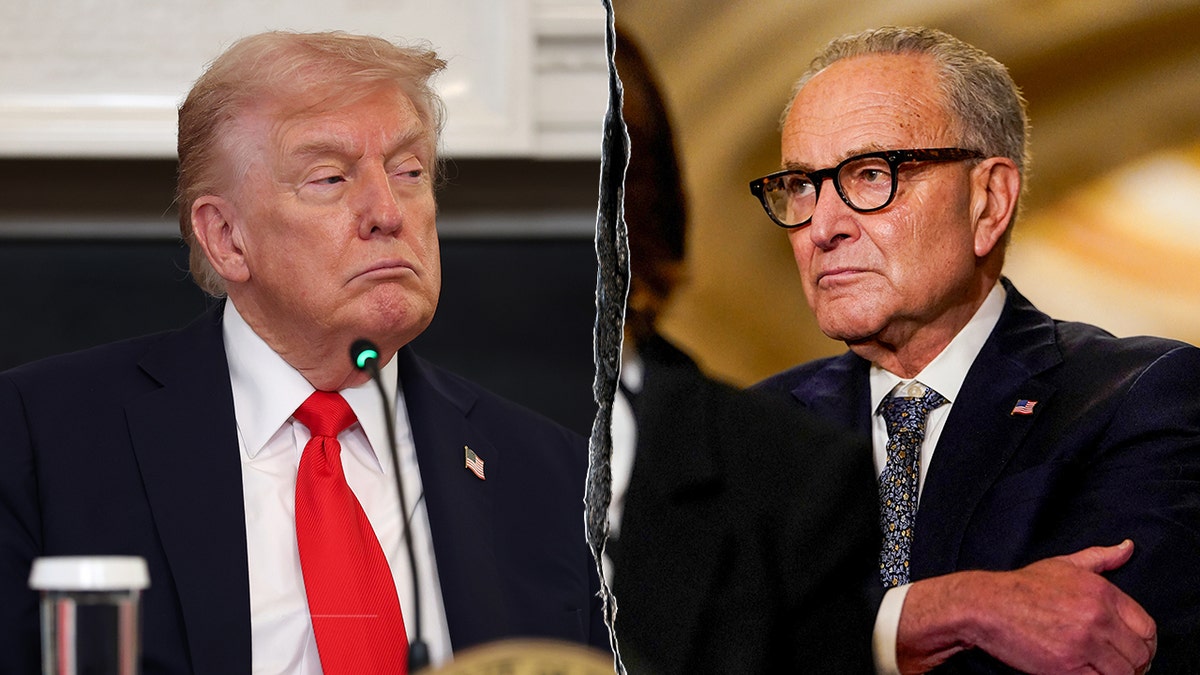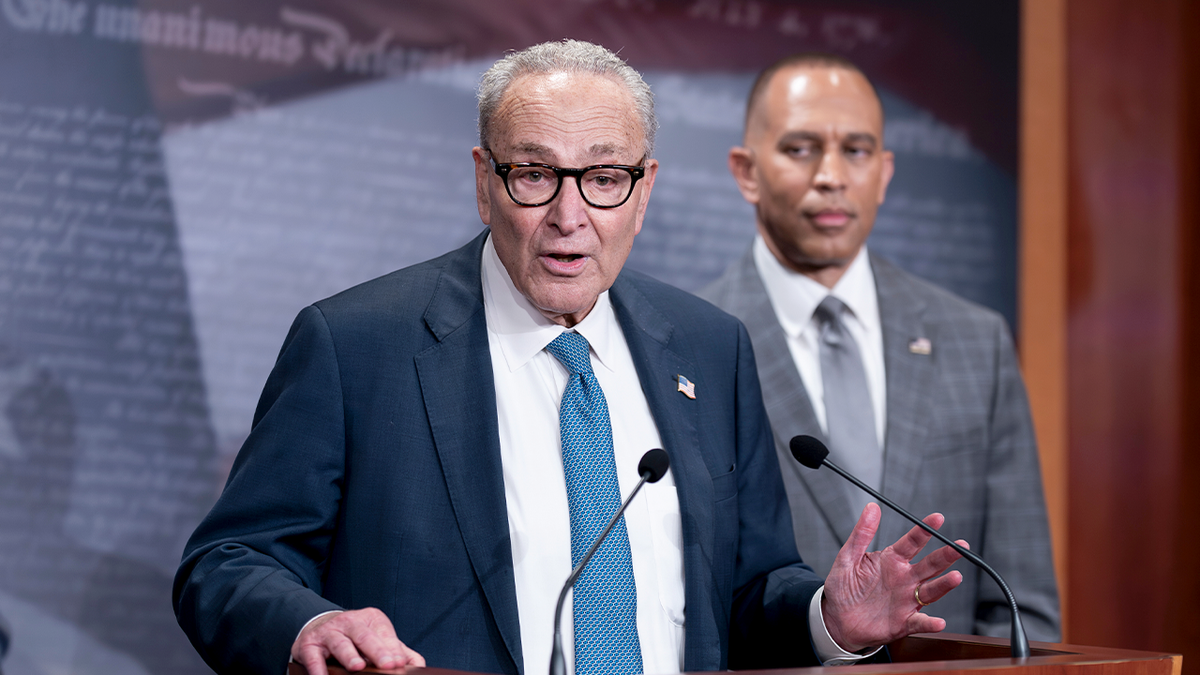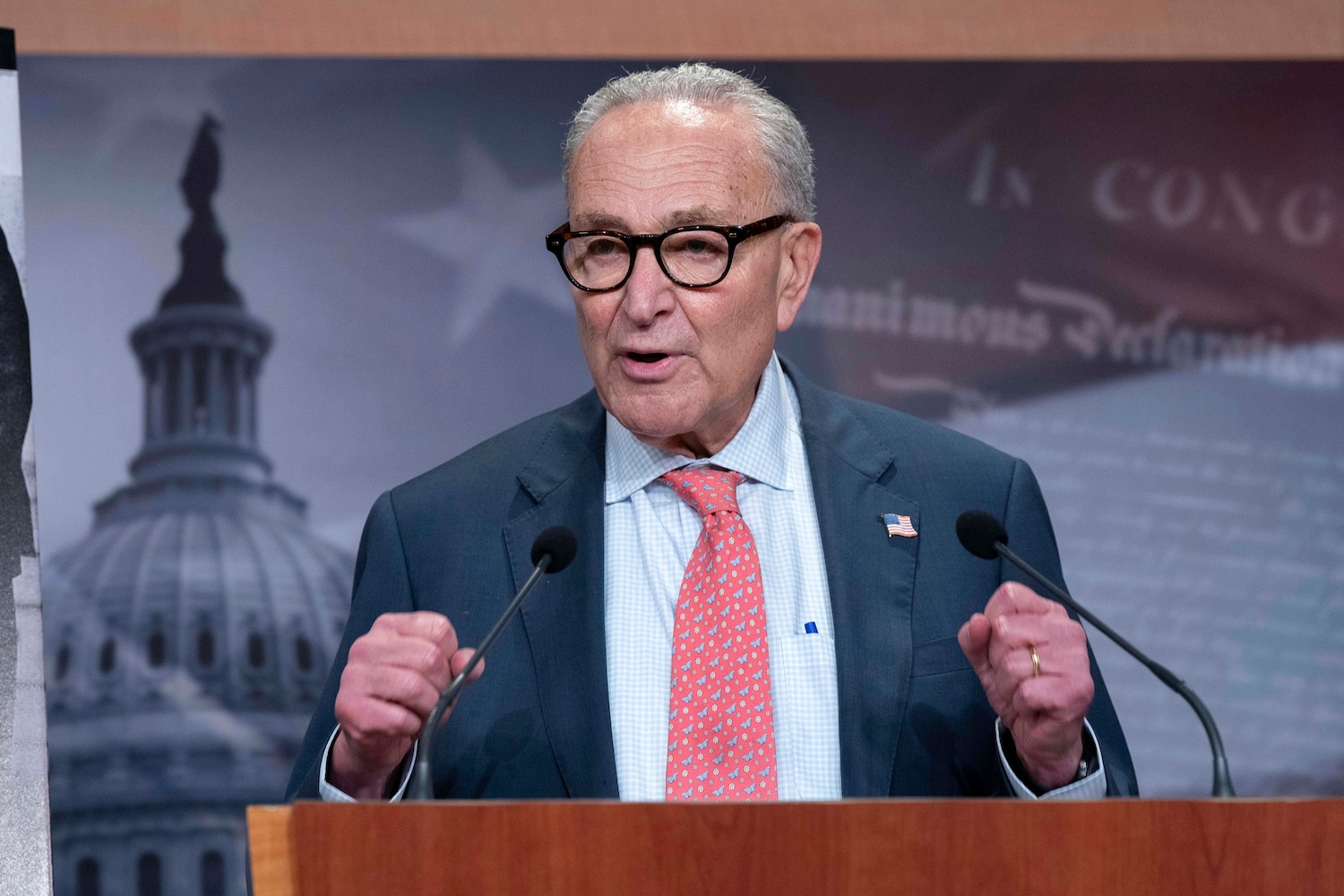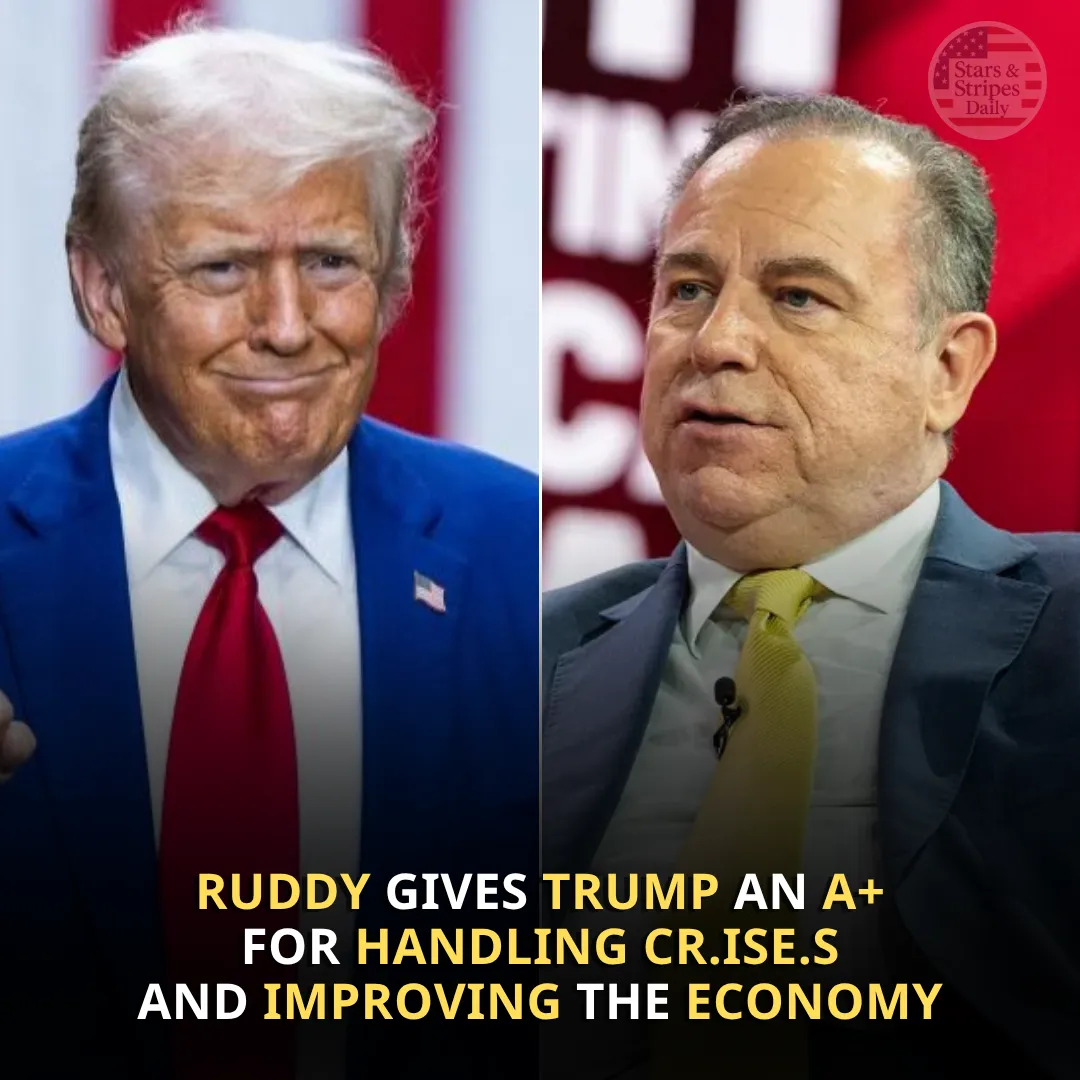
As the U.S. government shutdown enters its third week, President Donald Trump’s decision to embark on a weeklong trip to Asia has sparked sharp criticism from Senate Minority Leader Chuck Schumer, D-N.Y. Schumer, in a statement issued on Friday, accused Trump of “skipping town” while federal workers remain unpaid and millions of Americans face uncertainty due to the government shutdown.
The senator’s remarks came as Trump departed for Malaysia, Japan, and South Korea to engage in trade talks and address security issues in the region.
The ongoing government shutdown, which began earlier this month, has been a major point of contention between Republicans and Democrats. With each side blaming the other for the impasse, the shutdown has caused significant disruption to federal services and left over 750,000 federal workers furloughed or working without pay.
Amid this crisis, Trump’s decision to leave the country has drawn significant backlash from Democrats, who argue that the president is abandoning his responsibilities at a critical time.
In his statement, Schumer emphasized the gravity of the situation, describing the government shutdown as “a crisis of [Trump’s] own making.” Schumer argued that, while Americans and federal workers are suffering, Trump’s priorities appear to be focused on international trade rather than addressing the pressing issues facing the country.
“In the midst of the longest full government shutdown in American history — a crisis of his own making — President Trump’s priorities are severely misplaced,” Schumer said.
“While Americans are struggling to make ends meet, federal workers are going without pay, and millions of families are bracing for soaring health care costs, the President is leaving the country.”
Schumer’s remarks underscore the frustration many Democrats feel about Trump’s handling of the shutdown, with the president leaving for Asia at a time when lawmakers remain deadlocked over government funding.

The Senate Minority Leader’s rhetoric reflects the partisan divide that has characterized the current shutdown, with each side blaming the other for the prolonged deadlock.
While Schumer and other Democrats have criticized Trump’s decision to travel abroad during the shutdown, the president’s trip to Asia is part of a broader diplomatic and economic agenda.
Trump’s visit to Malaysia, Japan, and South Korea is focused on strengthening economic ties, particularly in the context of the ongoing trade war with China.
The trade war has been a major point of contention between the U.S. and China, with both countries imposing tariffs on each other’s goods. As part of his trip, Trump is expected to meet with regional allies to discuss the impact of China’s trade policies, including Beijing’s tightening of export controls on rare-earth minerals that are critical for advanced technologies, such as electronics and renewable energy.
Trump’s trip is also expected to focus on security concerns in the region. Tensions have been rising in the Asia-Pacific, particularly over North Korea’s nuclear ambitions and China’s growing military presence in the South China Sea.
The president’s visit will likely involve discussions with U.S. allies in the region to reaffirm America’s commitment to supporting its allies and ensuring regional stability.
While the president’s focus on international trade and security is a priority for his administration, the timing of his trip has raised questions about his commitment to resolving the government shutdown.
Critics argue that his decision to leave the country during a time of national crisis sends the wrong message to federal workers and the American public, who are facing uncertainty and economic hardship as a result of the shutdown.
Schumer’s frustration with Trump’s absence has also been compounded by what he perceives as a lack of urgency among Republican lawmakers to resolve the shutdown.
While the Republican-controlled House has passed a short-term funding bill, the measure has stalled in the Senate, where Democrats have insisted on additional provisions before agreeing to a deal.
Schumer has repeatedly called for a bipartisan agreement to reopen the government and address key issues, including healthcare and funding for federal programs.
“Democrats have asked, again and again, for President Trump to meet with us to negotiate a bipartisan deal that would address the healthcare crisis, and find a path forward to reopen the government,” Schumer said. “But instead of doing his job, President Trump is abandoning it.”
Schumer’s criticism reflects broader concerns within the Democratic Party about the lack of progress in negotiations and the impact of the shutdown on American families.
With both sides digging in on their positions, the shutdown has persisted for weeks without a clear path forward. Schumer’s call for bipartisan cooperation highlights the difficulties in negotiating a solution, particularly when key issues like healthcare, immigration, and border security are at stake.
In particular, Schumer has emphasized the need for Democrats and Republicans to work together to ensure that federal workers are paid and that essential services continue to operate.
“With the President out of the country, the responsibility falls squarely on Congressional Republicans to act — to come to the table, to do their jobs, and to deliver an agreement that reopens the government and protects Americans from another health care disaster,” Schumer said.
As the shutdown continues, its impact on the American people becomes more pronounced. Over 750,000 federal workers are currently furloughed or working without pay, and essential services ranging from food safety inspections to passport processing have been disrupted.
The shutdown has also put additional strain on programs like SNAP (Supplemental Nutrition Assistance Program) and WIC (Women, Infants, and Children), which provide critical support to low-income families.
With the federal government at a standstill, many Americans are left uncertain about the future of essential services and their own financial stability. For those who rely on government programs and federal employees, the prolonged shutdown represents a growing crisis that only deepens the divisions between Republicans and Democrats in Washington.
The longer the shutdown continues, the more pressure will mount on lawmakers to reach a resolution. Both sides of the aisle are under intense scrutiny, with public opinion shifting toward impatience with the political gridlock.
While Trump’s international trip may focus on critical trade and security issues, the shutdown remains a major source of domestic concern, with millions of Americans looking to Congress for solutions.
As the government shutdown drags on, the fallout is becoming more evident. With federal employees not receiving paychecks, many are struggling to make ends meet.
This financial uncertainty has also affected contractors and other individuals who rely on government contracts, as payments for services have been delayed or frozen.
In addition to the financial strain, the shutdown is also contributing to a broader sense of distrust in the political system. With both sides of the aisle failing to find common ground, many Americans are growing frustrated with the inability of their elected officials to address the country’s most pressing issues.

The political gridlock is serving to reinforce a sense of disillusionment, as more and more Americans feel that their needs are not being met by Washington.
Schumer’s leadership in the Senate is now under intense scrutiny as the shutdown continues. As Senate Minority Leader, Schumer is in a critical position to negotiate a solution to the impasse, but his failure to make headway in talks with Republicans has led some to question his ability to lead the Senate in these challenging times.
Schumer’s critics, particularly those in the Republican Party, argue that his refusal to compromise on key issues is prolonging the shutdown and causing unnecessary harm to federal workers and the American public.
The pressure is building on Schumer to either reach a deal with Republicans or risk further alienating his party’s base while failing to secure a resolution.
As the clock ticks down, Schumer faces a difficult task: balancing the demands of his progressive base while negotiating a deal that will bring the shutdown to an end.
The coming days will be crucial in determining whether Schumer can find common ground with Republicans and end the shutdown, or if the political deadlock will continue to hold the country hostage.
The government shutdown has exposed the deep divides within the American political system, with both parties locked in a battle over funding, healthcare, and immigration.
Schumer’s criticism of Trump for leaving the country during the crisis has highlighted the tension between the executive and legislative branches, as well as the challenges of negotiating a bipartisan solution.

While Trump’s trip to Asia is important for trade and security, the ongoing shutdown is a stark reminder of the pressing issues that Congress must address at home.
With federal workers, essential services, and the livelihoods of millions of Americans at stake, the need for leadership and compromise has never been more urgent.
Whether Trump and Schumer can put aside their differences and work together to resolve the shutdown remains to be seen, but the longer the impasse persists, the greater the strain on the American people and the nation’s political system.





